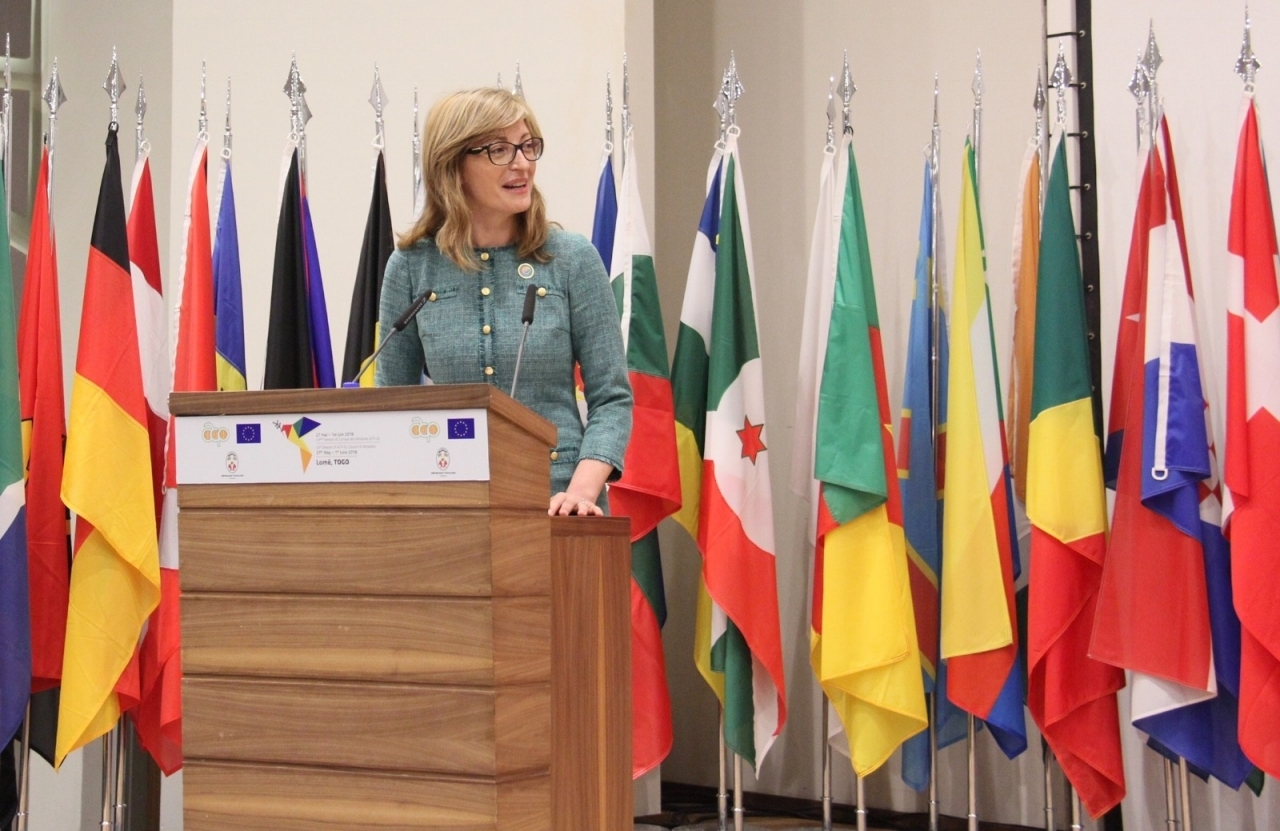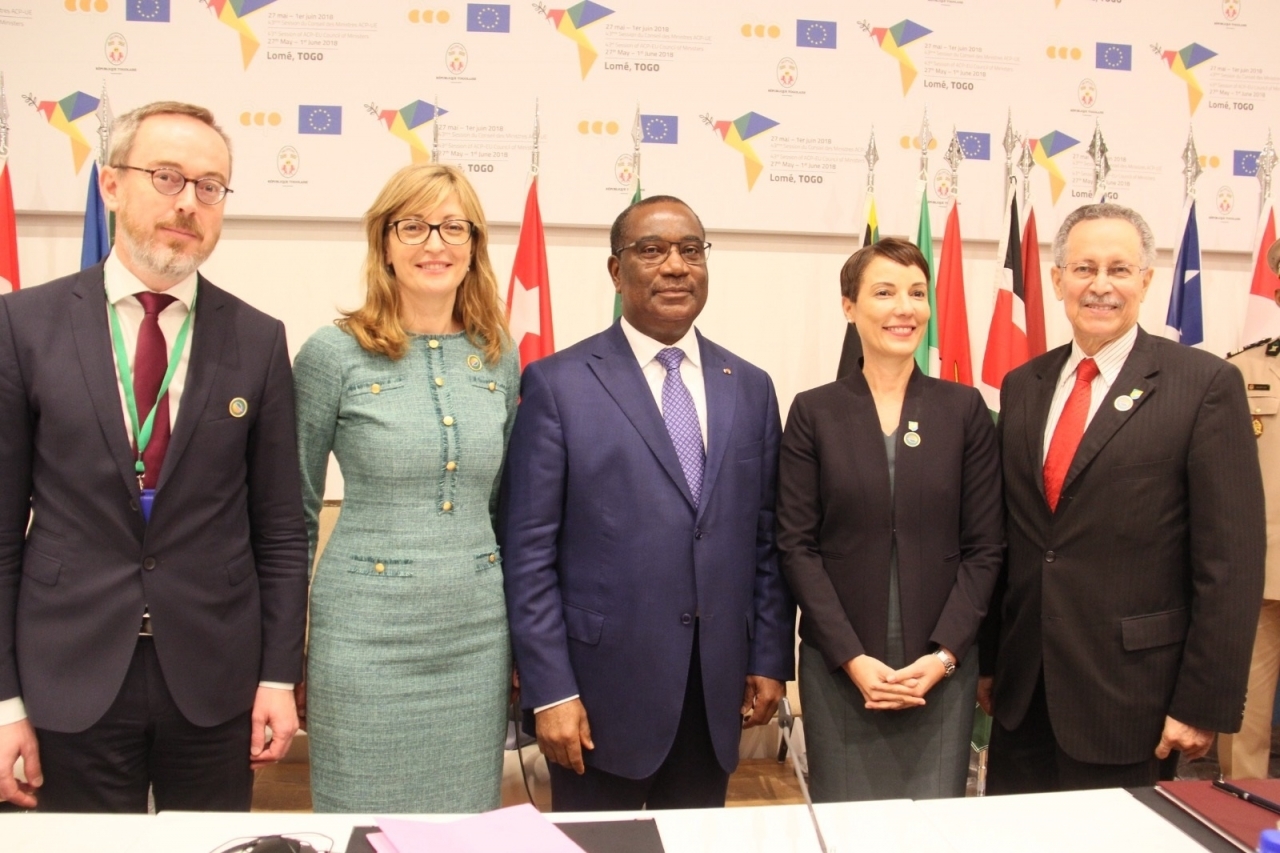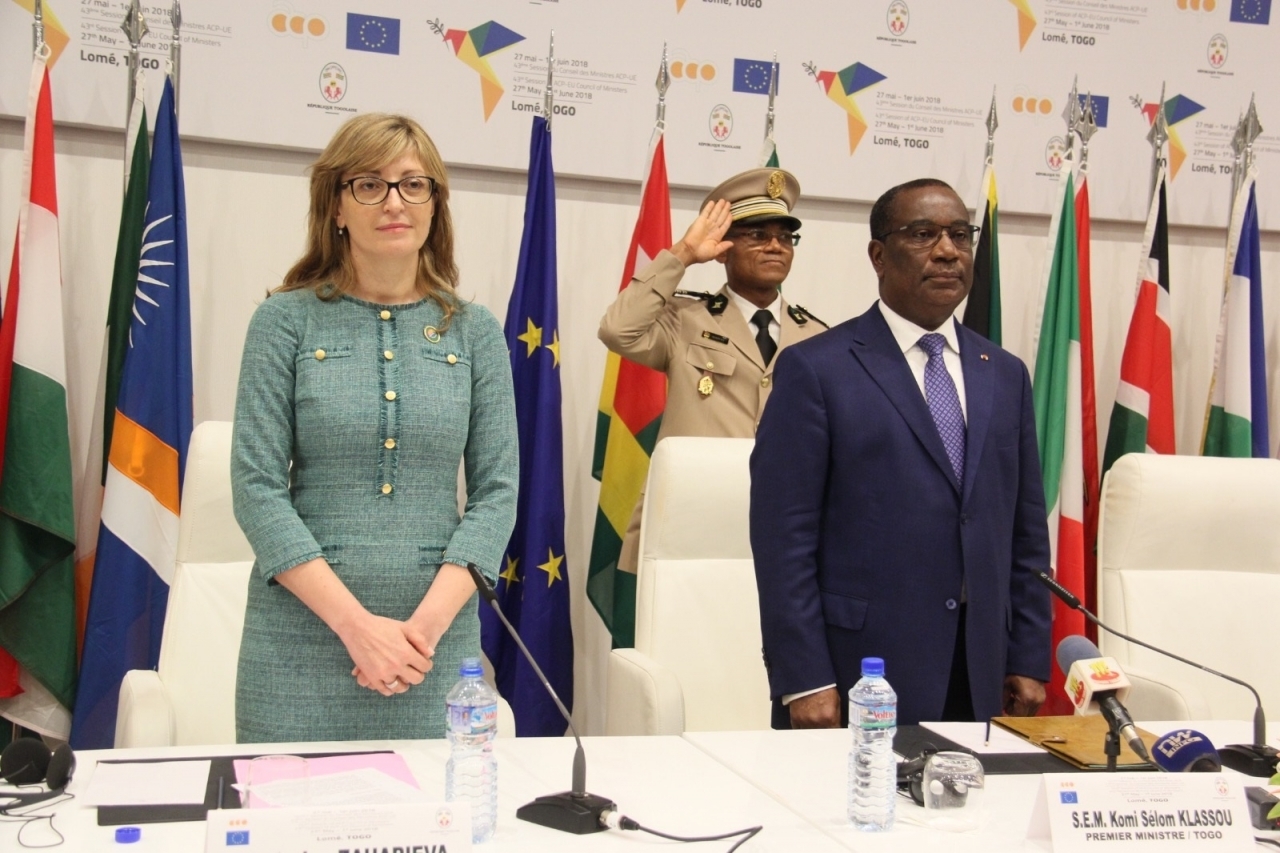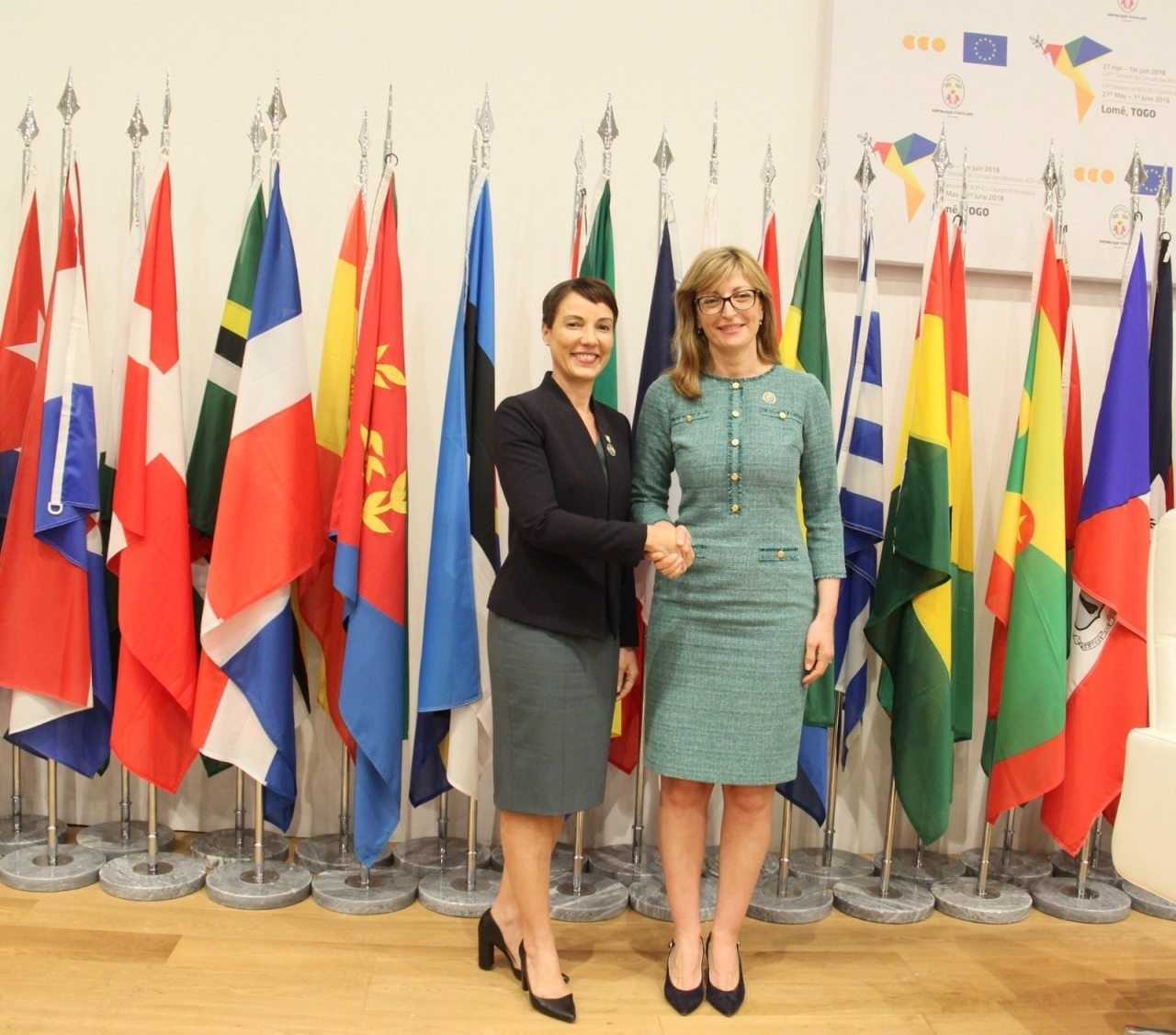Ekaterina Zaharieva, Togolese Prime Minister and Jamaican Foreign Minister Open Annual Ministerial of European Union and Africa, Caribbean, and Pacific Region
31 May 2018 News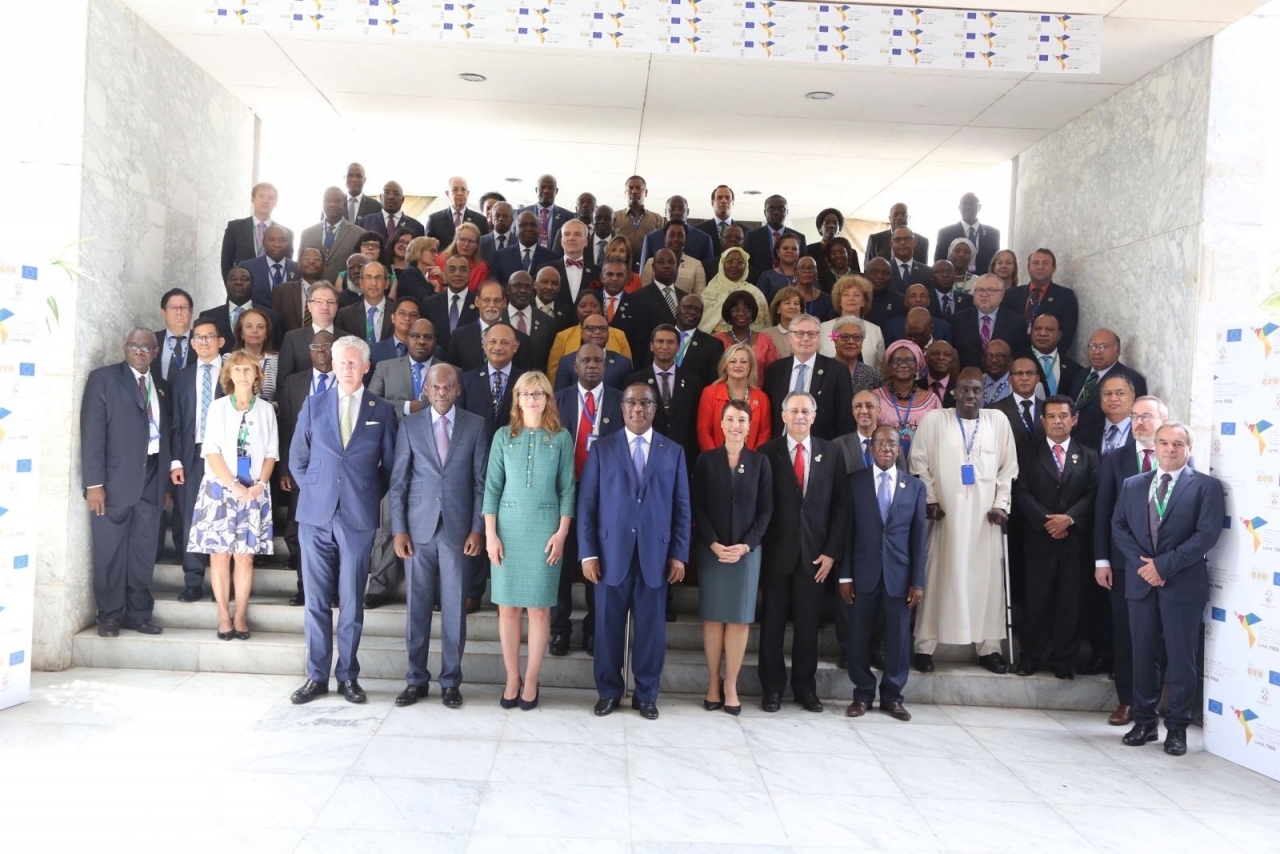
“The European Union would like to modernise our relationship with ACP countries in the new post-2020 agreement. We would like to see a document that will frame the sustainable development agenda, a flexible agreement that will be the basis to react to the new global realities.” With this statement, Deputy Prime Minister and Minister of Foreign Affairs Ekaterina Zaharieva opened the 43rd Session of the Joint Council of Ministers of the EU and the Africa, Caribbean, and Pacific Group of States (ACP), which is taking place in Lomé, the capital of the Togolese Republic.
The official opening ceremony was also addressed by the Prime Minister of the host country, Komi Sélom Klassou, and by the Foreign Minister of Jamaica, Senator Kamina Johnson-Smith, who co-chairs the forum.
In her capacity as President-in-Office of the EU Council, Ekaterina Zaharieva is a co-chair of the Session, which brought together delegations of 79 ACP States and 28 EU Member States. During the Joint Council, the ministers will discuss EU-ACP relations in the context of the future Partnership Agreement after 2020, also known as “Post-Cotonou”.
“The EU proposal seeks to strengthen the regional partnership. We are here to discuss concrete ideas on our common agenda. In the area of climate change, the EU and ACP have been clearly successful in cooperating and driving these global issues ahead. The EU remains committed to the successful implementation of the Paris Agreement. Our deliberation will also be dedicated to migration. Our continued discussions are necessary to better understand our expectations and to adjust our policies according to the needs on the ground. In the area of trade cooperation, we are in an active implementation phase, including on the latest economic partnership agreements adopted. On the EU side, we are happy to see new countries seeking to join the EPAs of their regions. We will also discuss the European External Investment Plan, which is an important element of the EU toolbox that aims to contribute to eradicating poverty and addressing the root causes of migration,” Zaharieva emphasised.
“I was born in 1975, when the first Lomé Convention was adopted, the first document between the European Economic Community and 71 African, Caribbean and Pacific States. I am proud that we will discuss today ways to improve this partnership in the coming decades,” Ekaterina Zaharieva said.
The ACP-EU Council of Ministers is the supreme institution of the partnership between the two organisations. It meets once a year, alternately in Brussels and in an ACP country, and is comprised of the members of the EU Council, a member of the European Commission, and a member of the government of each ACP State.
The future of ACP-EU relations will top the agenda of the Council of Ministers meeting in Lomé because the Cotonou Agreement, which currently regulates cooperation between the EU and the ACP region, will expire in 2020. Negotiations on a new agreement, known as Post-Cotonou, are expected to start in the autumn of 2018.
The Cotonou Agreement is now the overarching framework for EU relations with African, Caribbean and Pacific (ACP) countries. It was adopted in 2000 to replace the 1975 Lomé Convention. It aims to reduce and eventually eradicate poverty and contribute to the gradual integration of the ACP countries into the world economy. The agreement is based on three pillars:
* development cooperation
* economic and trade cooperation
* political dimension.
The Cotonou Agreement will expire in February 2020. On the EU side, active work is in progress under the leadership of the Bulgarian Presidency of the EU Council for the adoption of the negotiating mandate for the future partnership with the ACP States, and the new agreement is expected to be concluded for a term of 20 years.
The EU supports programmes and initiatives benefiting multiple countries in the group of ACP States. The Union also has programmes for further regional economic growth and development for specific regions within the ACP. Most development projects are financed through the European Development Fund (EDF). These funds are not part of the EU’s general budget. They are governed by an internal agreement between Member States meeting within the Council. The 11th EDF, adopted in 2013, runs from 2014 to 2020 and includes a total of EUR 30.5 billion.
Migration is an important aspect of EU-ACP relations. The framework for cooperation in this area is laid down in Article 13 of the Cotonou Agreement. This article includes paragraphs on improving conditions in countries of origin and transit, legal migration and return of illegal immigrants.

